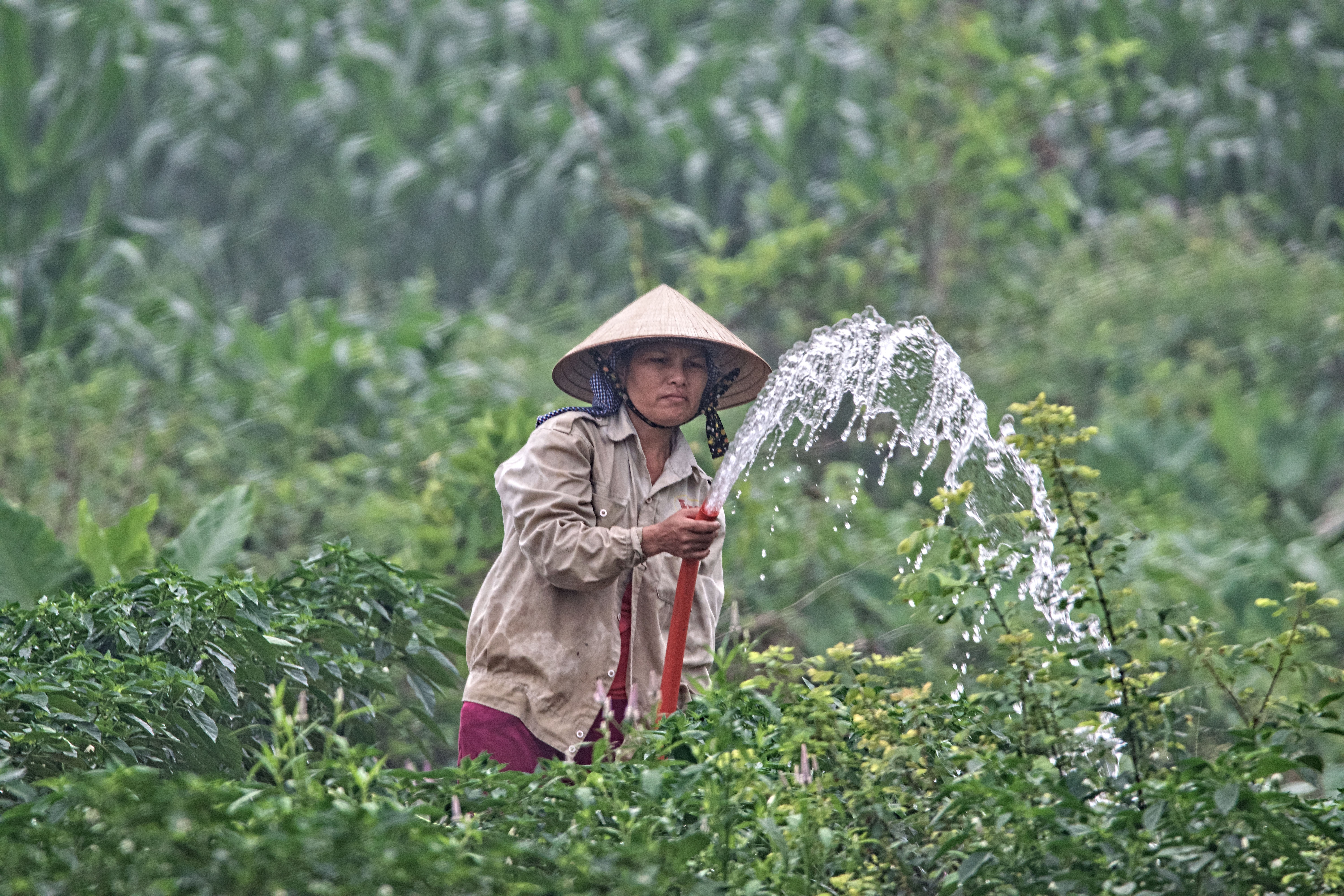Gender-Sensitive Satellite-Based Agricultural Insurance (GAIINS)
This blog, titled "Insuring Against Climate Risk to Help Woman Farmers Grow", was originally published by Katherine Casey and Georgia Hartman on SERVIR Global on December 10, 2021. View the original posting here.
Image

Insuring Against Climate Risk to Help Women Farmers Grow
In order to build resilience to the effects of climate change, what small growers really need in their toolbox is the ability to protect against specific perils. In exchange for a premium payment, microinsurance can offer this type of protection and risk transfer. This perspective was shared by Dr. Molly E. Brown—Professor of Geographical Sciences at the University of Maryland and Chief Science Officer at the 6th Grain Corporation—at a recent USAID Agrilinks webinar on using satellite data as a climate adaptation strategy to enhance food security. As changing climate patterns increasingly disrupt food production, quality insurance will be key to providing a safety net for farmers. However, traditional approaches to insurance tend to be too costly, especially in remote locations.
Women in agriculture face additional gender-specific challenges compounded by climate stressors. Women make up 43% of the world's agricultural labor force, yet on the plots they manage, the yields produced are typically lower than those managed by men. This is not due to a lack of skill, but to a lack of access to agricultural inputs. Women and men smallholder farmers are more vulnerable to stressors that disrupt food production, including climate shocks. Thus, women smallholder farmers face a dual threat of vulnerability from climate change and from their lack of access to resources. In response, USAID and NASA are working with partners to use Earth observation data on crops and growing conditions to inform the design and implementation of gender-responsive, index-based insurance in East Africa. This type of crop insurance is designed to better support small-scale agriculture by automatically paying out when growing conditions—as assessed by an index of factors like rainfall and temperature that can easily be measured from space—drop below a certain threshold. Automatic payments mean that insurers don’t need to assess claims individually, which reduces the cost of the insurance. This approach can make quality insurance more accessible to those previously uninsured, including smallholder farmers, who are more likely to be women.
At the 26th UN Climate Change Conference of the Parties (COP26) in Glasgow, NASA Administrator Bill Nelson announced that the NASA and USAID SERVIR partnership will use USAID funds to support the Regional Center for Mapping of Resources for Development (RCMRD) in integrating gender and Earth observations into the risk financing sector to build local and regional resilience to climate shocks. The SERVIR partnership works with countries and institutions around the world to tackle development challenges through an approach that uses satellite data to address climate change, food and water security, disasters, land use, and air quality.
Administrator Nelson noted that “It is NASA and USAID investments like these that provide climate solutions to support a more sustainable future for everybody.”
Index-based insurance programs have been shown to improve resilience to climate shocks, reduce extreme poverty, and reward resilient behavior such as planting different types of crops. Building on SERVIR’s and RCMRD’s experience with public and private stakeholders in Kenya to expand and reduce the cost of crop insurance, this activity aims to make insurance more responsive to the needs of women agricultural producers. To do this, SERVIR will document women’s agricultural and economic needs that can be fulfilled by insurance, support insurance providers to build products that would support them, and co-develop a gender-certification for index-based insurance products with private sector partners. SERVIR is proud to work with its partners to secure the livelihoods of women farmers and build their resilience to climate change through replicable and scalable programs that transfer climate risk.




